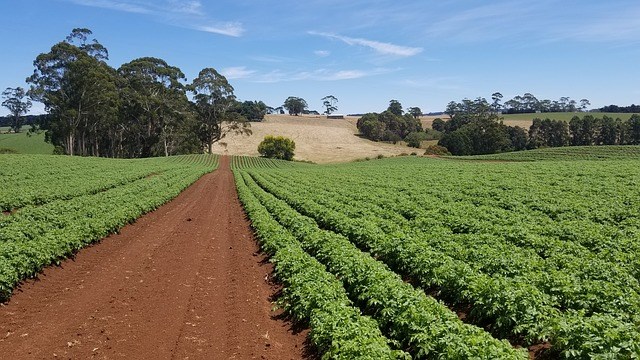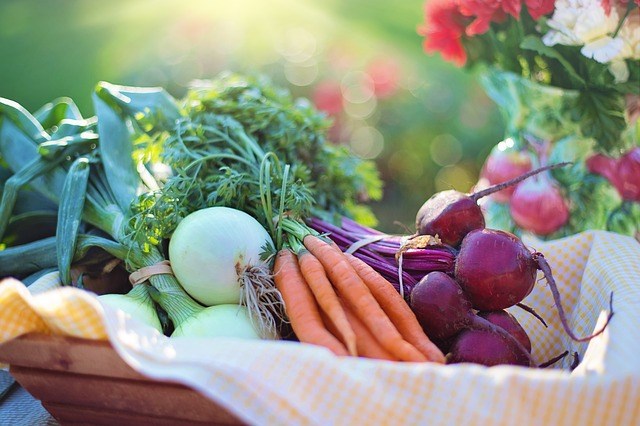With the announcement of the National Park Service (NPS) Healthy Foods Strategy, a component of the Healthy Parks Healthy People Strategic Plan, there has been a renewed emphasis on using sustainable, locally grown, high quality foods. This has prompted questions as to which suppliers a concessioner can use and what procedures to take if a concessioner wishes to grow their own produce.
The FDA Food Code (§3-201.11) requires food to come from an approved source. Purchasing foodstuffs from a commercial supplier typically achieves this requirement. A commercial supplier is licensed or permitted with the State/County in which they operate. The permitting agency works with suppliers to ensure the food is produced and packaged in a sanitary manner.
The Healthy Foods Strategy has many concessioners looking to source produce directly from a farmer or in some instances to raise their own produce and/or herbs. There are potential public health concerns associated with produce, such as outbreaks and transmission of infectious diseases.
The NPS Office of Public Health will accept the use of food/produce from non-approved sources under certain circumstances. The products must be limited to non-potentially hazardous foods, produce, and herbs. Other items, such as meat, are not acceptable from non-approved sources. If a concessioner wishes to serve meat products, the meat supplier must be under an inspection program with either the U.S. Department of Agriculture (USDA) or the State authority in which they are located, and the meat must bear a mark of inspection. Similarly, eggs must meet similar requirements and the carton must bear a USDA inspection shield.
For more information on this strategy, to discuss a specific supplier, or to discuss plans to use food/produce from a non-approved source, please contact your Public Health Consultant.

Working with a Farmer
Farmers are typically allowed to sell a raw agricultural commodity (not a processed food) to a retail customer under an agricultural exemption. For example, a farmer could sell apples directly to a concessioner, but not applesauce (a processed food). In addition, farmers are limited to selling food products they have raised, not products raised by other farmers. All products prepared in a private residence are prohibited.
If purchasing a non-processed commodity from a farmer, some important questions to ask include:
- Is the farm inspected, and if so by whom?
- Did they raise the crop?
- Where was the crop raised?
- Are there known sources of potential contaminants around the fields (e.g. Wild deer, pigs, cows, etc)?
- What water source is used to irrigate the fields, has the water ever been tested for chemical or bacteriological quality, and is there a potential for contamination of the water from animals?
- Are they in compliance with the Good Agricultural Practices (GAP’s)
- Are there restrooms and hand washing facilities available for the workers?
- Do they use any pesticides/herbicides? If so, which ones, who applied them, how are they applied, and when were they last applied?
- What are their fertilizer/manure management policies?
- How are the food products harvested, stored, and packed?
- If this is to become a routine supplier, the farmer must provide a statement that they are in compliance with the FDA’s Guidance for Minimizing Microbial Food Safety Hazards.
The above list is not exhaustive, but provides a foundation for discussions with the farmer to become familiar with their practices. Please record the answers to the above questions and work with your Public Health Consultant in determining if the supplier is acceptable. If the farmer is acceptable to your organization, you will need to monitor the product received and develop a system so that you are able to keep track of the deliveries and allow for a trace back investigation if an illness associated with the food product occurs.

Growing Your Own Produce
A concessioner can grow their own fruits/vegetables/herbs as long as they have received NPS permission to do so. We recommend reviewing the FDA Guide to Minimize Microbial Food Safety Hazards for Fresh Fruits and Vegetables.
All produce grown for use in a concessioner-operated facility must be washed prior to use, stored appropriately, and labeled with a system that identifies what was grown and when. Where appropriate, there will also need to be a system to allow trace back of individual ingredients in case of a reported illness.
Last updated: March 12, 2025
